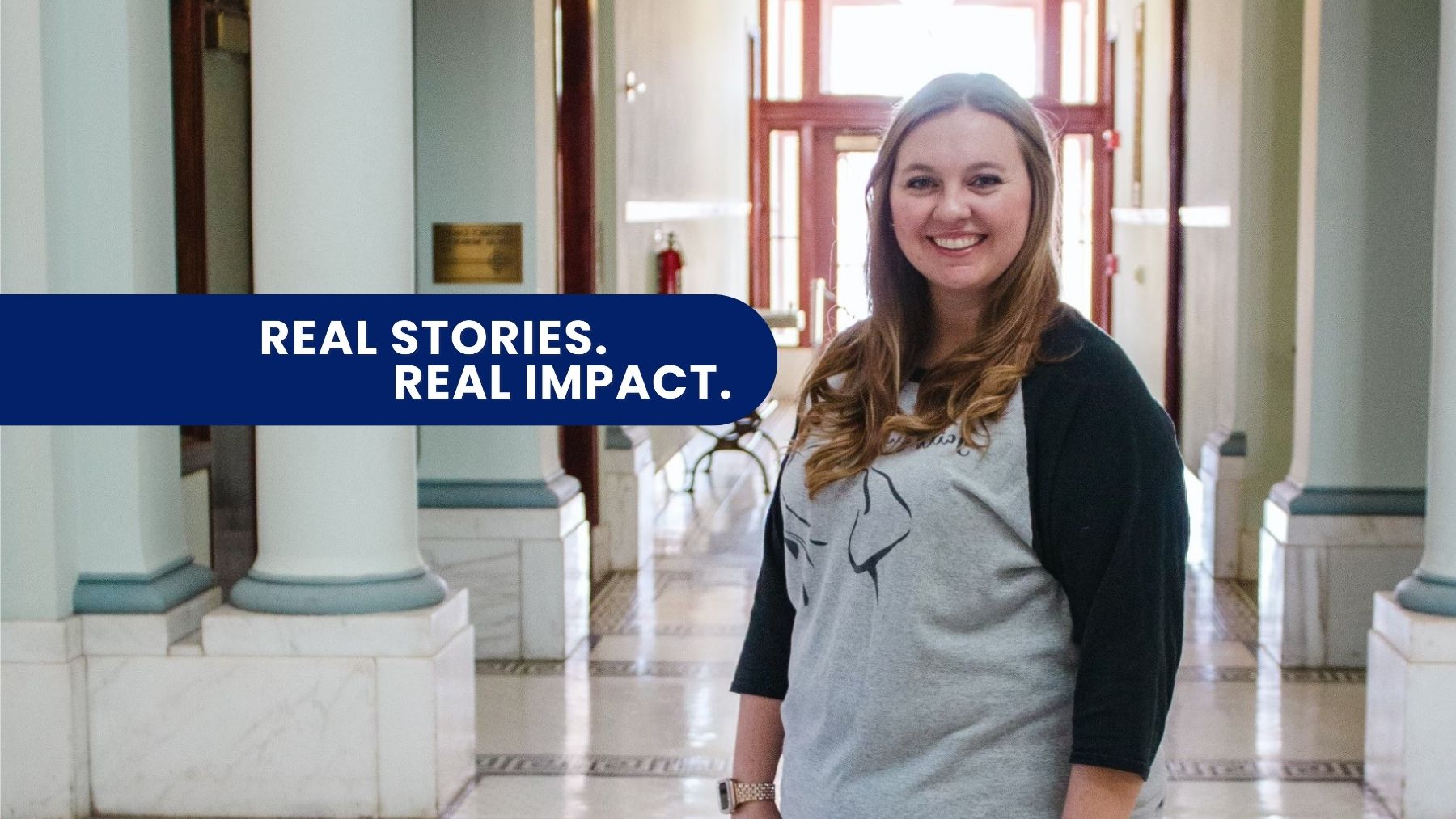
Breann Hudson lives and works in a place most Americans associate with otherworldly happenings – New Mexico’s Chaves County is home to the city of Roswell of flying saucer fame. Hudson, however, is all too familiar with the county’s worldly ills – twin cycles of blinding poverty and addiction. This sprawling, arid county is home to about 65,000 people, the majority living in Roswell, the rest scattered across 6,500 square miles. A fifth of the population here lives in poverty. Suicide rates and substance use disorder issues are among the highest in the nation.
Breann grapples with these issues daily in her role as lead family resource practitioner with the Chaves County CASA Court Appointed Special Advocates. She believes helping the youth and families she serves find ways to break out of these vicious cycles is her calling. “I see the need here,” she explains. “I see the need and I love what I do – wouldn’t trade it for the world.” But the work isn’t easy. Resources are limited.
“It’s hard work,” she admits. “There are days I go home exhausted, just mentally and emotionally drained.” Managing a caseload of families struggling to break free from the chokehold of substance abuse and mental health issues is overwhelming. This is why Breann is grateful for CHESS Health’s partnership and the prevention and recovery solutions that are available to her.
“We simply don’t have the services and resources that big cities have. For example, right now, we see a lot of teenagers with substance abuse, specifically fentanyl, as well as mental health and trauma issues. But we don’t have enough mental health care providers to help them process their trauma, build healthy coping skills, and stop abusing substances.” In-person therapy providers are scarce and waiting lists often run months into the future. It’s things like that which keep Breann up at night. She can’t be everywhere at once.
Breann and her team have embraced the CHESS Health tools, from the screening resources that quickly became a part of their day-to-day routines, to the tracking reports that can detail a client’s engagement with recovery regimens, to the Connections app and its 24/7 access to a network of community support and resources.
“The app is right there for them, every single day, every single hour, whenever they need it,” she says. “And that convenience is the most important piece of it all. I mean, it can be months before they can get in to see a therapist.” The community of peer support and other resources found on the Connections app have been blessings to her clients.
The app is right there for them, every single day, every single hour, whenever they need it.
Breann Hudson, Practioner
“One of my clients told me he has learned to control his drinking through the app,” she reports. “He hasn’t been drunk in a long time and he has strengthened his bond with his children. With the Connections app, he can find someone to talk to any time he needs it. Another client loves being able to see right away how many days he has maintained his sobriety. He loves the support group he’s found on the app, loves the topics people post about, says it keeps him accountable.” And this guy is definitely on the struggle train, Breann adds. “The things he is facing right now are easy triggers for a relapse, but I definitely think the Connections app has helped him avoid that relapse and made him stronger.”
It’s just nice to know we have these additional resources that we can rely on, that someone in the trenches of substance abuse, can rely on, always.
Breann Hudson, Practioner
The war Breann fights is long and victory, if and when it comes, is often not clear-cut. But she bubbles with optimism. “We change lives. I see people benefit from the services we offer. We support families. We say our motto at the Family Resource Center is planting seeds. Even when we don’t make as much progress as we’d hoped, we’re planting seeds.” And the solutions from Chess Health nourish and help those seeds take root.
It all helps Breann sleep a little better at night, knowing her clients can access support anytime. “It’s just nice to know we have these additional resources that we can rely on, that someone in the trenches of substance abuse, can rely on, always. It’s always there.”
